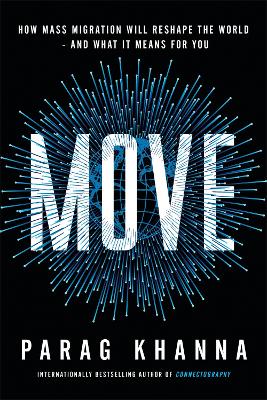Reviewed by Jeff Sexton on
Here, "celebrated futurist" (according to the book's description) Khanna basically does all he can to trash anything remotely Western (and particularly American) while seeking a society that is technologically tyrannical and ruled by the young. (Thus, "technotyrannical neoarchy".) His hubris in claiming that technology and skills are all that matters - and not pesky things like basic human rights and physical geographies - is utterly mind blowing. And his lack of documentation - barely 10% of this advanced reader copy edition I read was bibliography - is truly astounding for such major claims. Perhaps he thinks he gets away with this by claiming to be a "futurist"? Your projections are only as good as your source material, bub, and I expect to see it if you want to make such utterly fantastical claims as claiming that Wakanda is a possibly real society (specifically in saying that Black Panther is a "futuristic" film without ever even alluding to the term "science fiction", as in "Black Panther is a futuristic science fiction film") or that iFunny is a major Gen Z social media platform. Also, proclaiming the mobile home to be the "ultimate symbol of the new American mobility" is so utterly laughable in and of itself that this book should not be classified in any genre but humor.
If you're reading this review and want actual looks at how migration works and the various issues world powers will be looking at over the coming decades, you're *MUCH* better off with Sonia Shah's The Next Great Migration or Tim Marshall's The Power Of Geography and Prisoners of Geography - yes, even with Marshall's own shortsightedness on some issues.
This book is thus not recommended at all, unless you happen to have high tolerances for pain and are particularly masochistic. Which is a major shame, since the title and subtitle were so promising.
Reading updates
- Started reading
- 23 August, 2021: Finished reading
- 23 August, 2021: Reviewed
